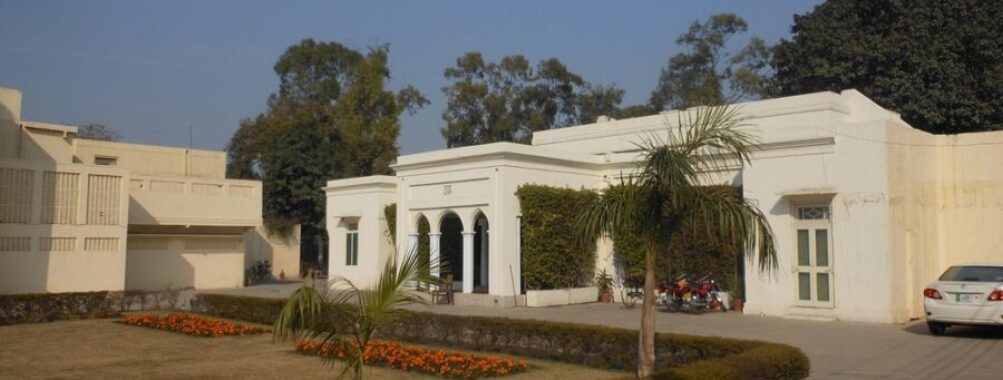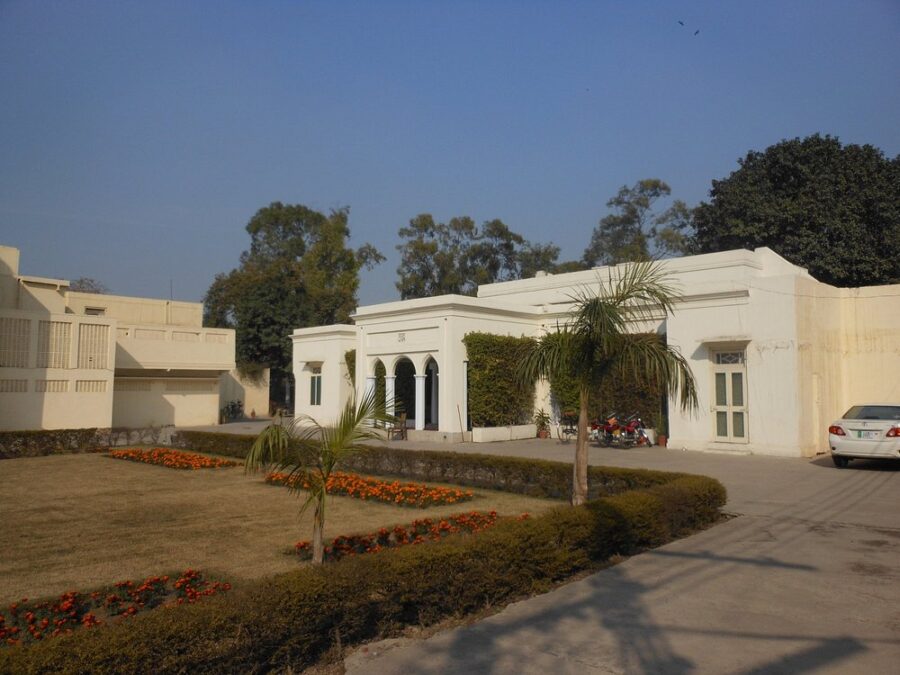
Iqbal Museum
Table of Contents
- History and Significance
- Main Attractions and Activities
- Permanent Collection Highlights
- Interactive Experiences
- Special Exhibits
- Visitor Experience
- Tips for Visitors
- Accessibility and Facilities
- Unique Features
- Overall Impressions
- Pros and Cons
- Location
- Places to Stay Near Iqbal Museum
- Find and Book a Tour
- Explore More Travel Guides
History and Significance

Tucked within the sandstone walls of Lahore’s historic Iqbal Manzil, the Iqbal Museum occupies the very rooms where Allama Muhammad Iqbal – philosopher, poet, and spiritual father of Pakistan – spent his formative years. Established in 1977 in the centenary year of his birth, this unassuming museum preserves not just artifacts but the intellectual DNA of a nation’s creation.
The significance of this site transcends its modest size. Within these walls, Iqbal penned verses that would ignite the Two-Nation Theory, composed letters to Muhammad Ali Jinnah that shaped the Pakistan movement, and developed the philosophical framework of Khudi (selfhood) that still influences South Asian thought. Unlike grand national monuments, this museum offers something more intimate – a chance to walk where Iqbal walked, touch books he held, and perhaps glimpse the world through his eyes.
Main Attractions and Activities
Permanent Collection Highlights
-
Iqbal’s Personal Library: Over 4,000 books with his handwritten marginal notes
-
The Writing Desk: Where he composed Bang-e-Dra and Javed Nama, complete with ink stains
-
Original Manuscripts: Drafts of poems with cross-outs and revisions showing his creative process
-
European Travel Artifacts: Souvenirs from his studies at Cambridge and Munich
-
The Death Mask: A plaster cast made immediately after his passing in 1938
Interactive Experiences
-
Poetry Recitation: Daily readings of Iqbal’s works in his actual study
-
Calligraphy Demonstrations: Artists recreating their verses in traditional styles
-
Virtual Reality: A recreation of 1920s Lahore as Iqbal knew it
-
“Walk with Iqbal”: Audio tour narrated as if by the poet himself
Special Exhibits
-
“Iqbal & Jinnah”: Correspondence that shaped Pakistan’s creation
-
“The Cambridge Years”: Exploring his Western philosophical influences
-
“Contemporary Interpretations”: Modern artists reimagining Iqbal’s concepts
Visitor Experience
Stepping into Iqbal’s ancestral home feels like crossing a temporal threshold. The air is thick with the scent of aged paper, wood polish, and the faintest hint of rosewater – a sensory echo of colonial-era Lahore. Sunlight filters through original stained glass, casting colored patterns on Persian carpets that once felt Iqbal’s footsteps.
The museum creates profound moments of connection:
-
Scholars poring over marginal notes in German philosophy texts
-
Schoolchildren, wide-eyed, before the very desk where Lab Pe Aati Hai Dua was written
-
Elderly visitors whispering along to recorded recitations of familiar verses
-
Foreign researchers discovering Iqbal’s engagement with Nietzsche and Bergson
Staff members – several Iqbal descendants among them – share stories passed down through generations. Ask about the tea set in the sitting room, and you’ll hear how Iqbal preferred Kashmiri chai while discussing Rumi with students.
Tips for Visitors
-
Timing Matters: Mornings are quieter; November sees Iqbal’s birth anniversary events
-
Guided Tours: Essential to appreciate context (available in Urdu/English)
-
Dress Code: Modest attire respectful to the site’s significance
-
Photography: Permitted (no flash near delicate manuscripts)
-
Combine Your Visit: Pair with the nearby Badshahi Mosque and Lahore Fort
-
Poetry Prep: Reading Iqbal’s works beforehand enriches the experience
-
Gift Shop: Excellent selection of translated works and calligraphy reproductions
Accessibility and Facilities
For a historic residence, accessibility is improving:
-
Ramp access to the ground-floor exhibits
-
Braille guidebooks available
-
Sensory-friendly hours (first Tuesday month)
-
Wheelchair-accessible restroom in the courtyard
Amenities are simple but sufficient:
-
Small café serving traditional chai and snacks
-
Reading room with Iqbal’s works in multiple languages
-
Cloakroom for bags (required for manuscript viewing)
Unique Features
What makes this museum extraordinary:
-
The Authenticity: Over 90% of items are original to Iqbal’s life
-
The Study: Preserved exactly as he left it in 1938
-
Audio Archives: Rare recordings of Iqbal reciting his poetry
-
Interactive Quran: Digital display of his personal annotated copy
-
Living Legacy: Regular seminars with contemporary philosophers
Overall Impressions
The Iqbal Museum offers more than artifacts – it provides direct communion with a nation’s intellectual foundations. Unlike sterile galleries, this space thrums with lingering creative energy. You’ll leave with ink-smudged fingers from turning pages of his books, your mind buzzing with verses, and perhaps a new understanding of how poetry can shape history.
As one visiting philosopher remarked: “This isn’t a museum – it’s a living conversation across time.” The experience lingers like the final notes of a well-recited ghazal, prompting reflection on identity, faith, and the power of ideas to transform geography.
Pros and Cons
Pros
-
Unparalleled access to Iqbal’s world
-
Intimate atmosphere lacking in larger museums
-
Knowledgeable staff with personal connections
-
Affordable entry (under PKR 200)
-
Well-preserved artifacts in original context
Cons
-
Limited English translations for some exhibits
-
No climate control threatens delicate items
-
Small size can feel crowded
-
Few interactive elements for children
-
Inconsistent opening hours (verify before visiting)
The Iqbal Museum is an essential pilgrimage for understanding Pakistan’s soul. Whether you’re a student of history, a lover of poetry, or simply curious about the man behind the idea, this humble house museum delivers profound encounters with a visionary’s legacy.
As Iqbal himself wrote: “خودی کو کر بلند اتنا کہ ہر تقدیر سے پہلے” (Elevate yourself so much that before every destiny). After walking these rooms, you’ll leave feeling elevated, not just by Iqbal’s genius, but by the enduring power of ideas to shape nations. Just don’t be surprised if you find yourself sitting quietly in the courtyard afterward, letting the experience settle like dust motes in Lahore’s golden light.
Location
Places to Stay Near Iqbal Museum
Find and Book a Tour
Explore More Travel Guides
No reviews found! Be the first to review!